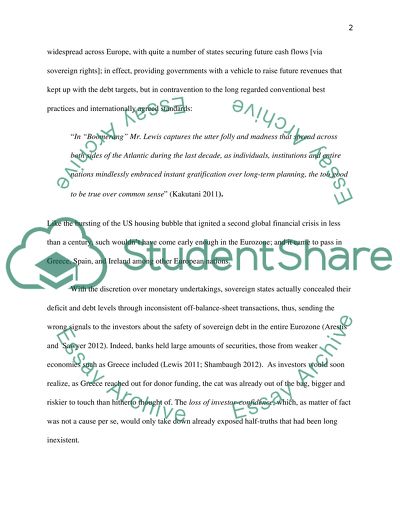What caused the Euro crises of 2010 Essay Example | Topics and Well Written Essays - 500 words. Retrieved from https://studentshare.org/macro-microeconomics/1632242-what-caused-the-euro-crises-of-2010
What Caused the Euro Crises of 2010 Essay Example | Topics and Well Written Essays - 500 Words. https://studentshare.org/macro-microeconomics/1632242-what-caused-the-euro-crises-of-2010.


